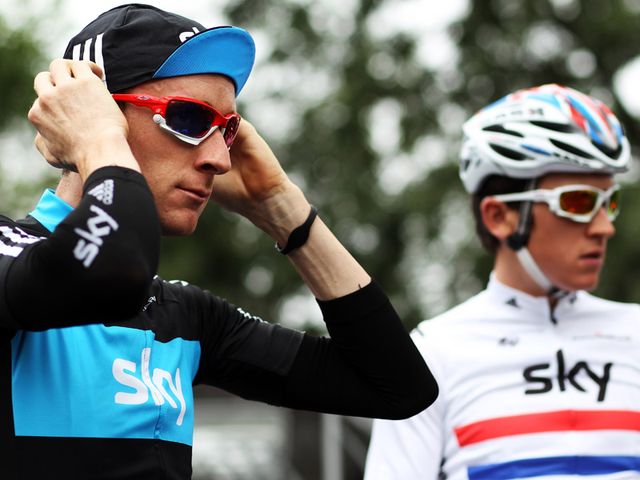 |
| Proof that it doesn’t work? |
I wrote back in August that the Italians were investigating the phenomenon of Power Balance wristbands. Being sarcastic, this means the Italians might rule on the matter by 2015 but the wheels of justice turn slowly in many other countries.
 |
| Nuevas energias, gracias a la magia de hologramas |
Nevertheless they have become a worldwide marketing phenomenon, sported by sports stars. I’ve yet to discover the terms awarded to those endorsing these products. For me the most amusing tale is that of Leire Pajín Iraola, pictured, who sports one. She is the Spanish health minister, charged with overseeing a multi-billion Euro budget for sensitive healthcare and pharmaceutical matters.
But in Australia the authorities have acted faster and censured the company. They have reportedly said people can return the bans for a full refund if disatisfied. It does beg the question of whether any adult is going to risk returning to the shop asking for their money back, claiming they were duped by tales of holograms and “natural energy fields”.
Yet I can’t help wondering if all this is harmless. First, sometimes the placebo effect can be big, if it helped some with confidence, then all the better. Second, surely only a few bought this piece of plastic expecting performance gains?
What is the difference between a silicon band… and a bike?But what does it all say about pro endorsements? If some people were swayed by images of their favourite rider wearing a silicone band, are they also impressed by the victor’s choice of sunglasses, shoes or even bike? Because almost every pro is paid to use these items, it is rarely a matter of choice and in any event you can give a rider any type of sunglasses, shoes or bike and the result is highly likely to be the same.
We humans are suckers for products that promise gains when we know deep down the claim is probably phoney. This isn’t to ridicule the whole cycle trade, there are many great products out there that push the edge of technology. The difference is in the marketing claims, you probably buy your cycling shoes for the visual appeal rather than any marketing claims about magic holograms and you can demonstrate a frame is lighter or more aero than others, even if each manufacturer knows there are many ways to ensure a flattering result.

Indeed, the placebo effect is a powerful phenomena, though that has little to do with these bands. It's simply about belief.
The trouble is, a few individuals are making a lot of money by spouting drivel to gullible clientèle. Morally, where should this end? Should they be allowed to market these bands as curers of cancer to brain tumour patients? I mean, the placebo effect can be powerful, right?
Paul.
Registered nurse – mental health.
Hi Paul, I tend to agree, it's more that they weren't really promising anything significant like improved outcomes to your health. Perhaps it is mean but I tend to think anyone who believed in holograms and "energy fields" probably gets ripped off all year long by the advertising industry, whether it's deodorant or clothing. Perhaps the PB guys were too explicit in promising gains, rather than using more subtle signals to imply impending health or wealth if only you bought their product that are used by so many companies?
That said there are lines and we can see people from Italy to Australia taking action here and it's good to see people are watching out.
The money-making point is an interesting one. My local bike shop has already ditched the €30 Power Balance bands… only to have a display of copycat versions for €10 on the counter.
Thanks for the response Matt.
I guess the Power Band thing has turned into a sort of fad and that's why there's knock-offs about. The same thing happened with the yellow Livestrong bands; the genuine one's would be on ebay for 10s of dollars, but you could get a yellow band for a few coins at the corner shop if you wanted.
Now where did I put that advertising campaign for Snake Oil chain lube ;0)
Powerbalance admits their wrist bands are a scam – http://gizmo.do/gt6FJG